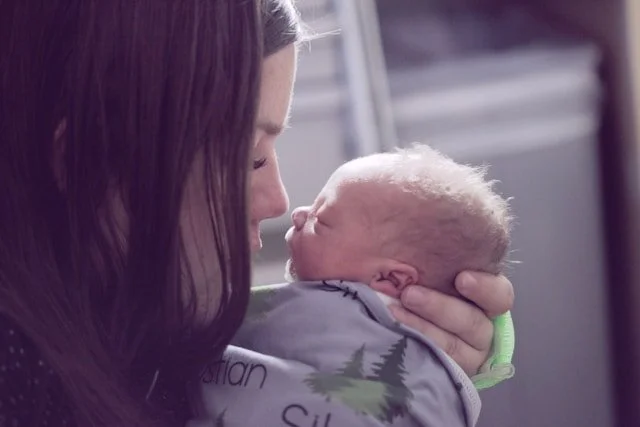What is Postpartum Anxiety?
Most folks have heard of the “baby blues” — more technically known as postpartum depression. But postpartum anxiety gets much less notice. Meanwhile, at least 20 percent of new mothers experience this problem. It may not officially be a diagnosable disorder, but postpartum anxiety deserves our full attention.
Once that bundle of joy is born, some realities set in — big time. For example, your baby is fully and completely vulnerable. They depend on you, which can become a source of chronic worry and stress. Unless and until you find a healthy balance in this new role, postpartum anxiety looms as a debilitating possibility.
Postpartum Anxiety: The Basics
During the first year of your baby’s life, you may exhibit signs and symptoms like intrusive, worrisome thoughts about your child. These thoughts feel as if they are beyond your control, so you lean into behaviors and thought patterns like:
Trying to control your surroundings so your baby is safe
Relentlessly checking on your newborn
Living in a state of exhausting hyper-vigilance
Your fears becoming more and more vague and irrational
For nine months, you couldn’t wait to welcome a new child into the world. But now, the joy of parenthood is taking a back seat to all-consuming anxiety. The common symptoms of such anxiety include:
Racing thoughts
Increased heart rate
Inability to calm yourself
Unexplained muscle aches and tension
Irritability
Shortness of breath
Loss of focus and concentration that manifests in forgetfulness, indecisiveness, and more
Sleep disturbances
Digestive issues
What Causes Postpartum Anxiety?
For starters, there are two major culprits to consider. As with postpartum depression, hormonal shifts are a big player. During pregnancy, a woman’s hormones undergo changes, but those changes are rapidly reversed upon giving birth. This can throw off anyone’s ability to regulate emotions and maintain healthy functioning.
Also, of course, being a new mom is exhausting. A woman gets way less sleep while dealing with way more stimulus and a way larger workload. Anxiety thrives under such conditions. In addition, a family or personal history of anxiety disorders is a factor.
How Long Does Postpartum Anxiety Last?
As with any version of anxiety, this is very much a case-by-case scenario. Left unchecked, of course, can become a very long-term concern. Here are some important factors:
Postpartum anxiety can rear its ugly head during pregnancy or not until several weeks after giving birth. When it starts can affect how long it will last.
Also, the duration of postpartum anxiety is influenced by how quickly you recognize it and seek help.
With the productive support of loved ones, postpartum anxiety can be more swiftly managed.
How Do You Know That It’s Not Postpartum Depression?
Postpartum depression is a diagnosable disorder, and it’s more common than postpartum anxiety. However, neither is reason to assume you understand what’s happening. In fact, both issues can be present.
Both issues will present with chronic fearfulness, sleep problems, and irritability. That said, while both arise when a new mother is overwhelmed, the causes are different. As the names imply, one has sadness as an underlying foundation, while the other is characterized by excessive worrying. It’s wise to connect with a therapist to help you parse out the root causes.
Do Not Go It Alone
As you can see, there are many variables at play. Plus, a new mother can often expect to have her issues downplayed as “hormonal” or “oversensitivity.” This will only add to the chronic stress. Ideally, you will connect with a compatible therapist. Working as a team, you can pinpoint the problem and get busy addressing it. It can all start with a free and confidential consultation for postpartum therapy.

